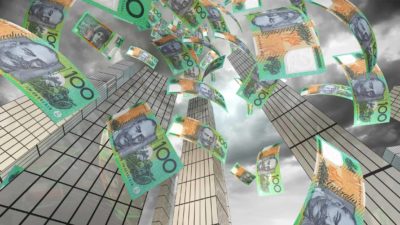The National Australia Bank Ltd (ASX: NAB) share price has dropped around 10% since the start of the year, as we can see on the chart below. Following the latest interest rate increase by the Reserve Bank of Australia (RBA), what could happen next?
NAB is one of Australia's largest lenders to businesses and households, so changes in the interest rate can have a large influence on things.
What did the RBA do?
Australia's central bank decided to increase the target cash rate by 25 basis points (0.25%) to 4.15%.
This latest increase may have caught some market participants off guard, but it demonstrated the RBA's resolve to return inflation to the target range of between 2% to 3% sooner rather than later. Governor Lowe said this path is "likely to involve a couple of years of relatively slow growth in the economy".
The RBA acknowledged that "some further tightening of monetary policy may be required to ensure that inflation returns to target in a reasonable timeframe, but that will depend upon how the economy and inflation evolve…the board remains resolute in its determination to return inflation to target and will do what is necessary to achieve that."
What could this mean for the NAB share price?
The ASX bank share may not see much benefit from this if at all. It can earn more on transaction accounts, which don't pay interest to depositors. However, the increase in interest rates raises the risk of higher arrears for NAB regarding borrowers, as well as the possibility of increased bad debts.
Goldman Sachs has a price target of $30.69 on the ASX bank share, as covered by my colleague James Mickleboro. A price target is where a broker thinks the share price will be in 12 months from now. This suggests that NAB shares could rise by just over 20%.
The broker also believes that NAB is going to pay a fully franked annual dividend of $1.66 per share over FY23 and FY24, which is a grossed-up dividend yield of 9.4% at the current NAB share price.
Goldman suggests that "volume momentum over the next 12 months as favouring commercial volumes over housing volumes and we believe NAB provides the best exposure to this thematic."
In the FY23 half-year result, the business and private banking earnings rose by 19.9% to $1.7 billion, and corporate and institutional earnings grew 16.6% to $940 million.
Can NAB's growing business earnings offset any weakness in competition relating to mortgages and deposits?
I think NAB's earnings will perform better than some of the other ASX bank shares, thanks to the leadership of CEO Ross McEwan and the relatively conservative settings the bank is operating on. However, if arrears rise it could be problematic.









